| TALES OF HEATH & POND |
VISITOR'S GUEST BOOK | HISTORY OF THE HEATH & POND | GUESTS' PHOTOGRAPHS | SOURCES OF INFORMATION | VIDEOS | SITE MAP |
Black Swans
The blacks swans were on the pond until April - then they disappeared - let's hope that they return later in the year!
To see a larger copy of each image click on it; to see the next large image click at the right of the image, to go back click on the left of the image. To close a large image click on the cross in the top right hand corner.
New photographs are usually added to the bottom of the page - click to go to the bottom of this page
2020 |
||
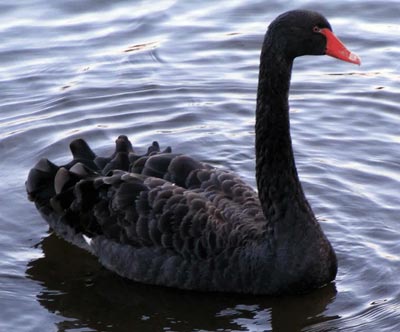 |
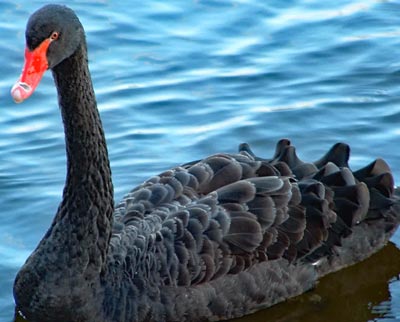 |
|
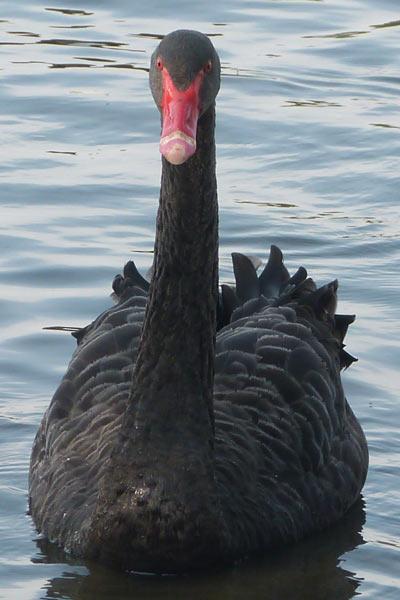 |

Black swans are native to Australia and are the state bird of Western Australia. They were brought to the UK as ornamental birds like peacocks and golden pheasants. Like many other captive birds, they occasionally find their way out into the wild. They are similar in size to the closely related mute swan. They appear all black when swimming but they have white primary wing feathers, which can be seen in flight. The bill is red with a broad white band on the tip. There have been occasional reports of successful breeding attempts in the UK but they have not become established. They face competition from our native swans so it is unlikely they could become as well established here. Black swans are vegetarians, using their metre long necks to reach down and eat algae and underwater weeds. They mate for life and build nests either on the ground or floating on the water. They lay 4-6 eggs and the cygnets are very cute and fluffy. The mum and dad are very aggressive around their babies and will protect them fiercely. On the ground, a group of black swans is called a bank. When flying in a group, they are called a wedge. . |
|
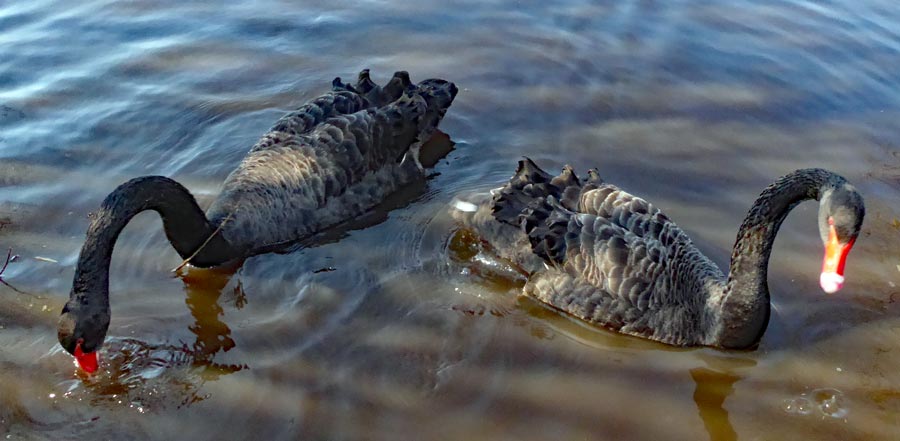 |
||
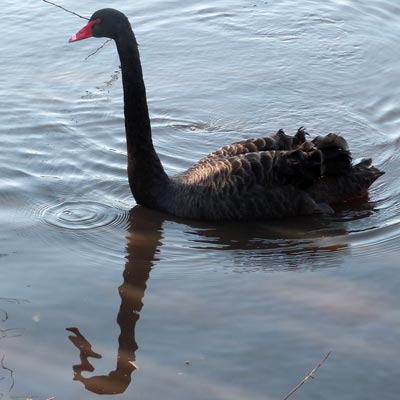 |
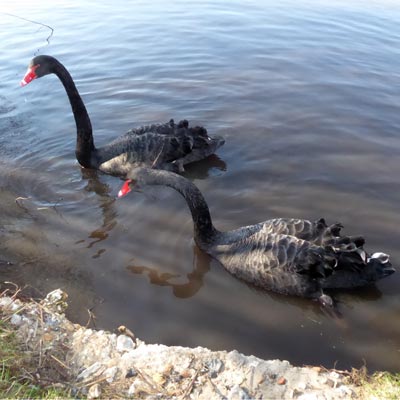 |
|
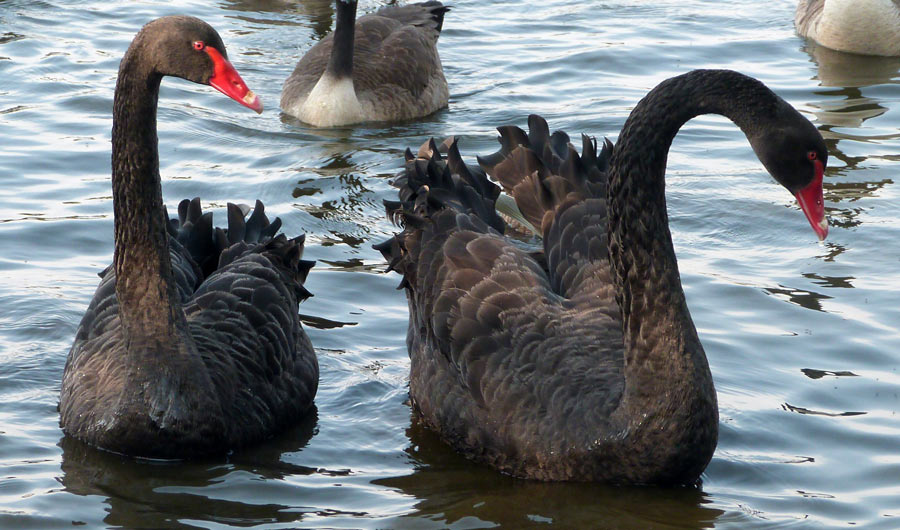 |
||
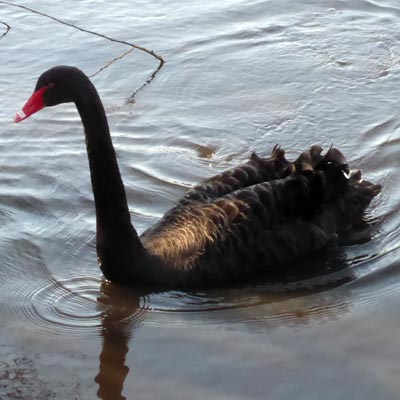 |
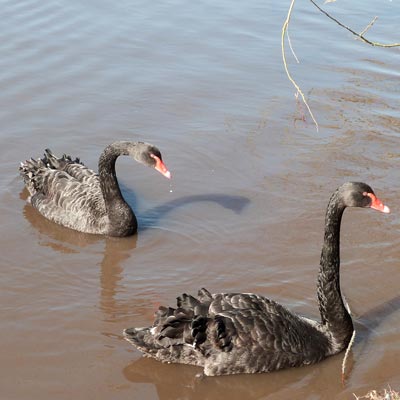 |
|
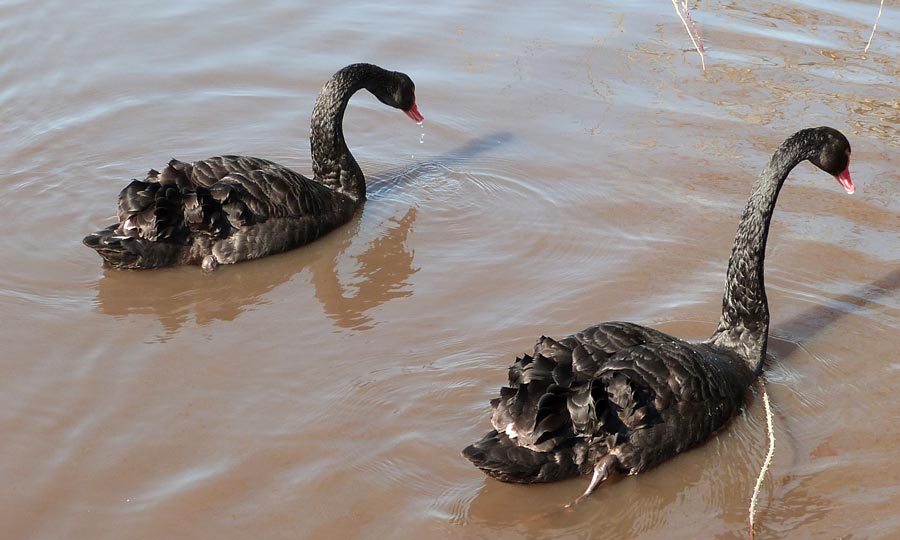 |
||
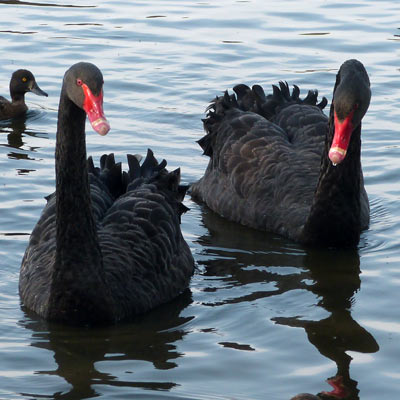 |
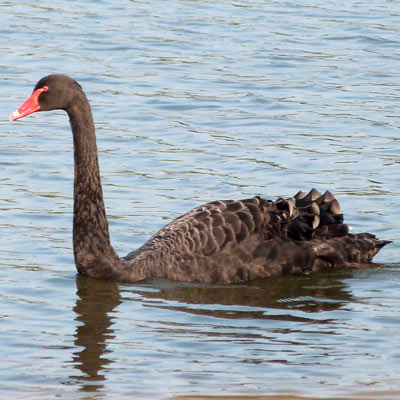 |
|
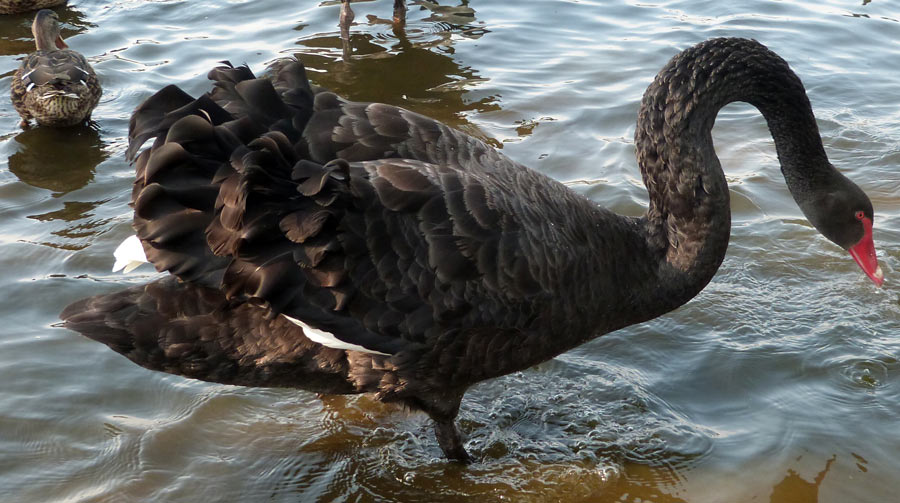 |
||
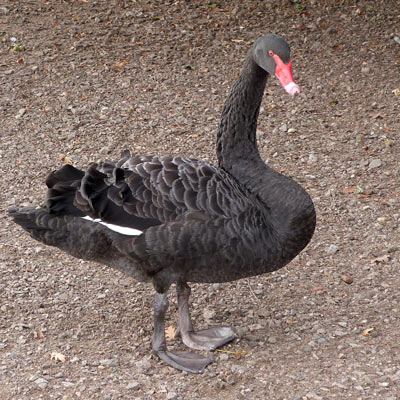 |
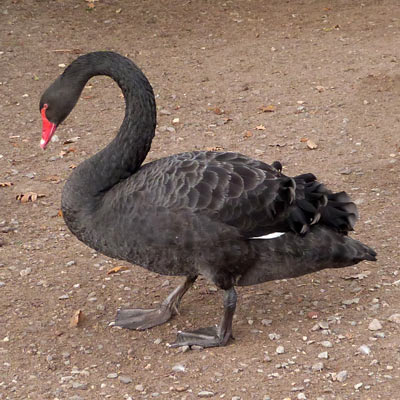 |
|
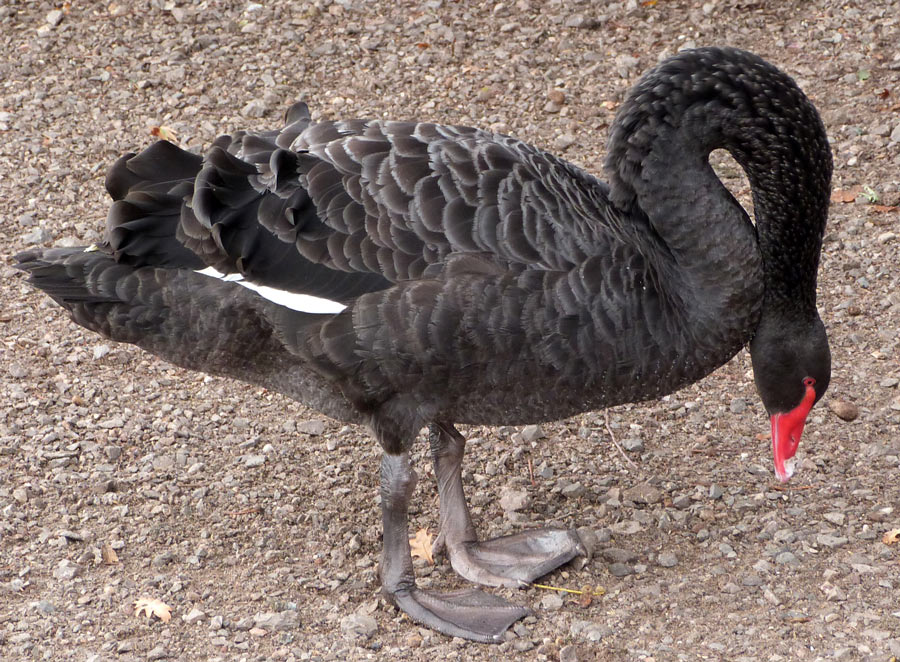 |
||
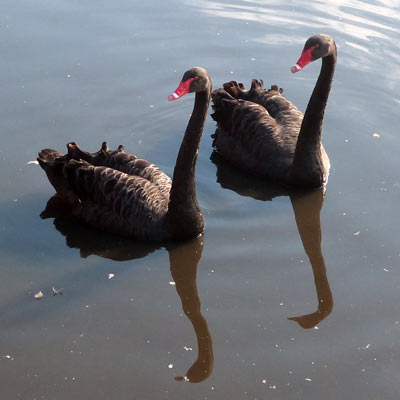 |
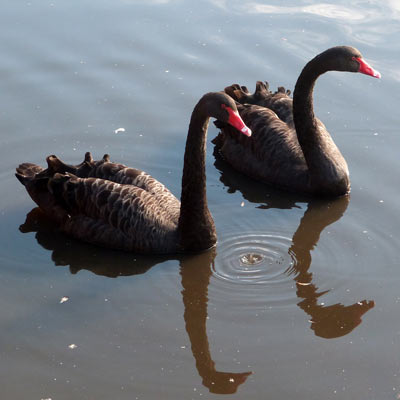 |
|
2021 |
||
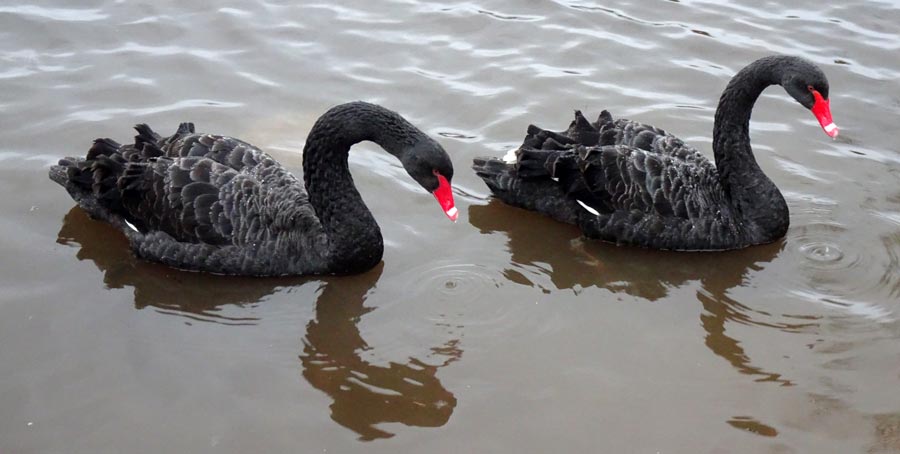 |
||
| 17 February - They're back! | ||
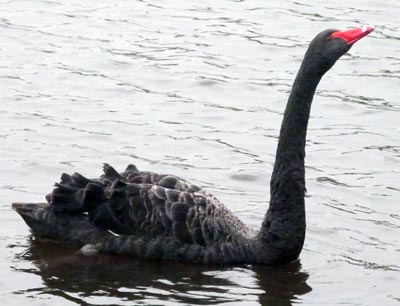 |
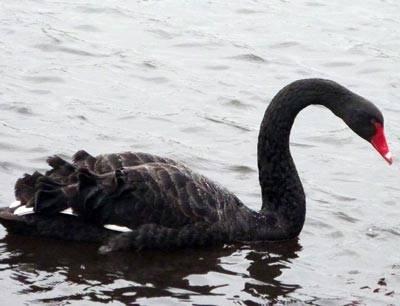 |
|
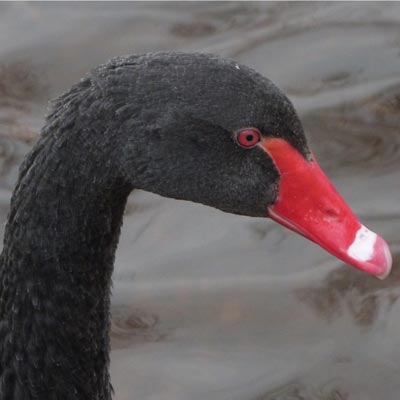 |
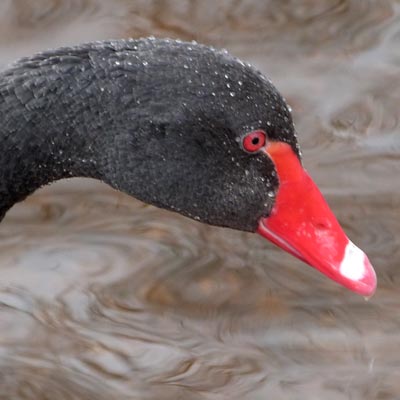 |
|
| Go to the top of this page | ||